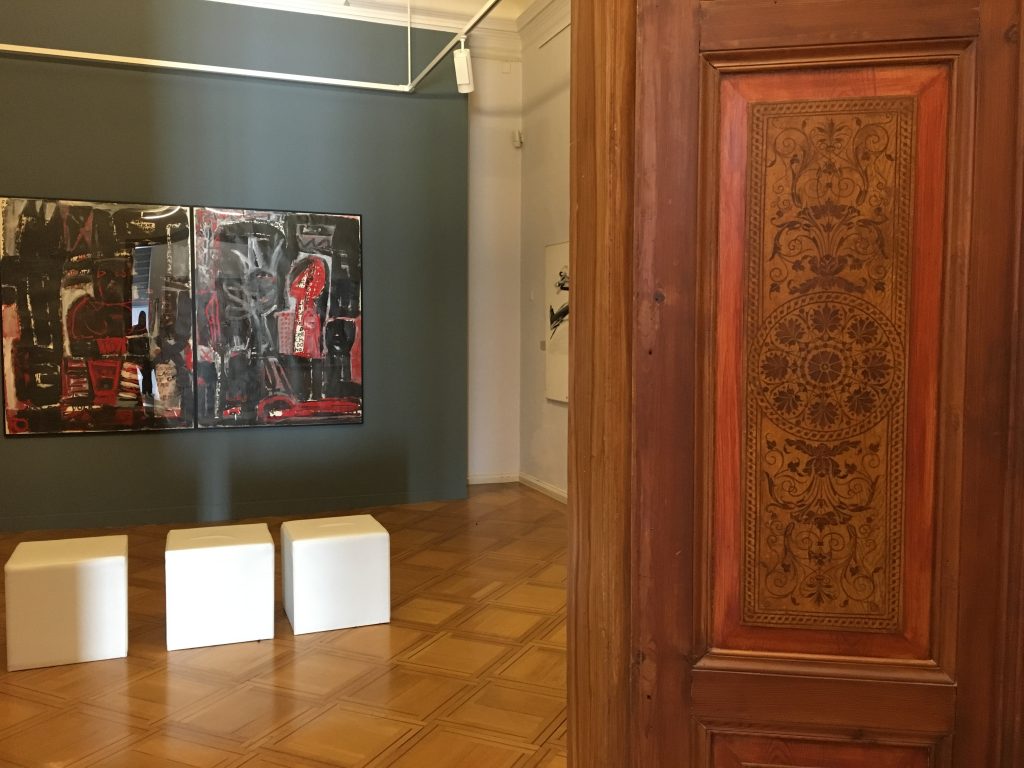This article was co-authored by Carola
Stories of innovation and inspiration to revitalize heritage. Apolda – a little-forgotten town in Thuringia, Germany, awaits its visitors.
When you arrive in Apolda, a derelict train station welcomes you to the empty streets and the abandoned buildings. “Why am I stranded here?” might be your first question. But, after crossing the oversized stairway and walking down the main street, something awakens your curiosity. A majestic white Italian-style villa meets your eyes, and you find yourself eager to discover more.
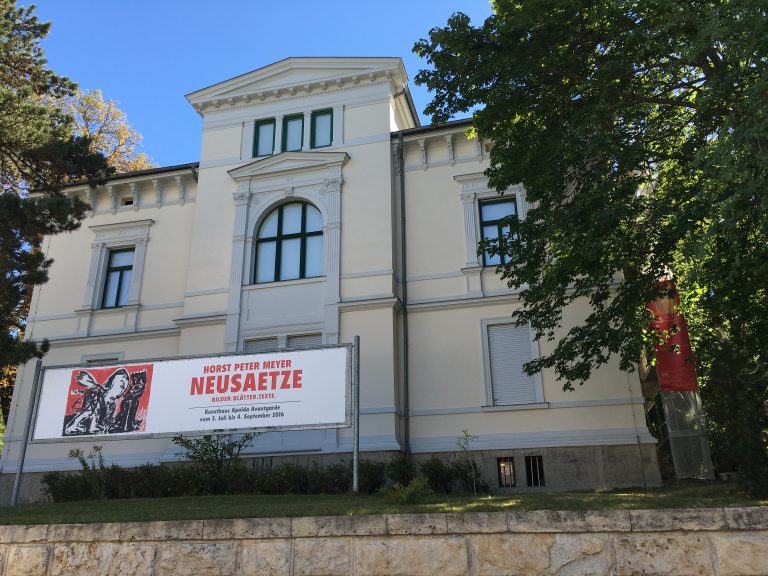
“Kunsthaus Apolda Avantgarde” is the sign outside. This old house was constructed between 1870 – 71, by a wealthy person from the knitting industry, the primary flourishing industry of Apolda in those days. After long being used as an administrative building, it got a new face in the year 1994. “Apolda Avantgarde”, an Arts Organisation, decided to revitalise this building, which is protected under heritage regulation, for a new cultural purpose. They opened it as an art exhibition centre in 1995 and received 800 visitors to the first exhibition – “Liebermann and Corinth”. Since then, there has been no looking back and “[we] now have 14,000 – 20,000 visitors each year”, says Ms. Zinger from the management of the Kunsthaus (“art house”), as she proudly shows the preserved original banister from the 19th century. The old wooden doors on the first floor, featuring the intricate original paintings, showcase the wealth of the original owners. Today, these doors lead to a modern art exhibition. “We exhibit diverse art styles, but once every year we try to support a regional artist”, she emphasises. Ask her about the link to the knitting industry and she quickly points to the Design Prize they received for a knitting workshop in 2005. Her motivation behind the Kunsthaus – the passion to preserve history and to use it to support regional development. With 132 members, the modern-day Kunsthaus run by Apolda Avantgarde echoes the story of the wealthy families of this once rich town.
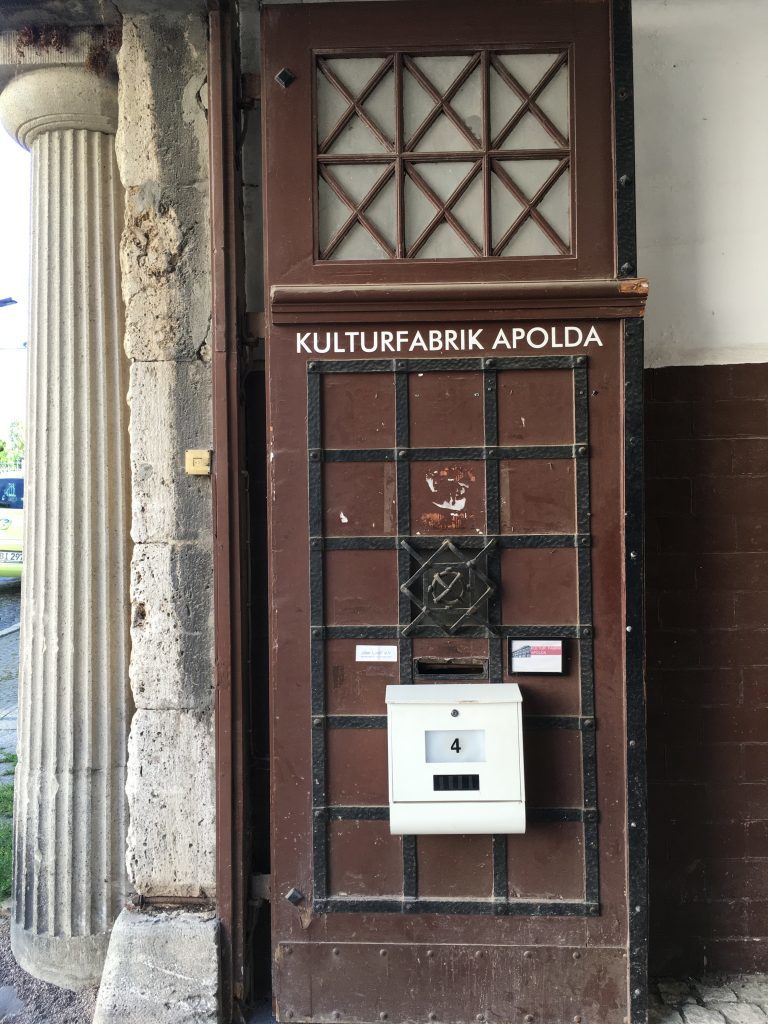
As you walk further down the empty streets, little do you know that many more inspiring stories await you behind the grey facades. On a sloping street, hidden in an Art Nouveau building, is one of the most innovative places that Thuringia has to offer – The Kulturfabrik (“art factory”). Started in the year 2012 by Professor Achim Preiß of Bauhaus University Weimar and his former assistant Sibylle Müller, the Kulturfabrik offers 10 studios to artists from various genres. “The aim was to start low cost studios for students who lost their art studios in Weimar due to price increases”, says Sibylle. This empty knitting factory, founded in 1920 by Karl Köcher, immediately appealed to them and the renovation work began. “It was full of garbage”, laughs Sibylle. She explains how motivated people from Apolda volunteered to clean and renovate the building. The four floors of the building enthral visitors with exhibitions from the contemporary art scene of the region. To this day, the wooden floors bear traces of the building’s former use. Marks of wear show how the female workers laboured, walking around metal tables cutting patterns for clothes. “It’s a pity that we cannot save it all”, Sybille says with tinge of regret in her voice. In 2015, just one year after the gallery opened, the concept was one of the 100 winners of the prestigious Deutschland – Land der Ideen Innovation Award.
The Kunsthaus and the Kulturfabrik are both perfect examples of how innovative ideas and collective volunteer work have breathed life back into the forgotten buildings of Apolda.
Based on different concepts, both preserve the traces of the town’s rich history in their own innovative ways. At the same time, they also foster development of the regional cultural scene. Yet they wait their visitors. Apolda looks forward to tell its stories, to unveil its potential, to inspire, and to get inspired.
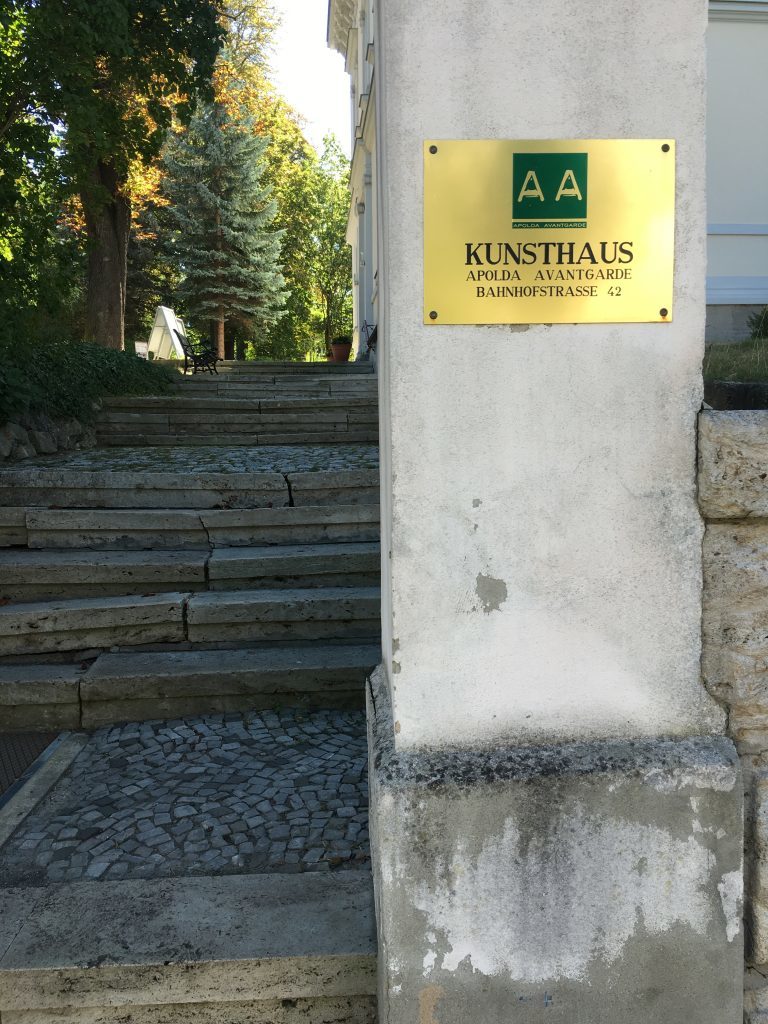
Sign “Kunsthaus Apolda Avantgarde” 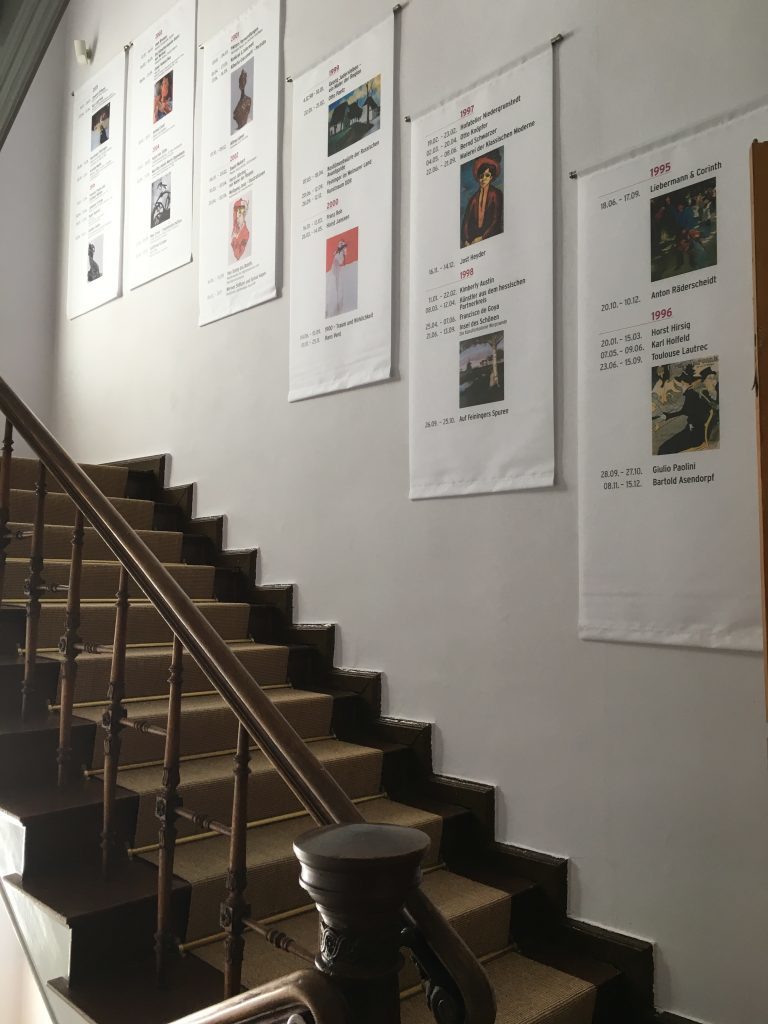
The Kunsthaus: 19th Century Banister 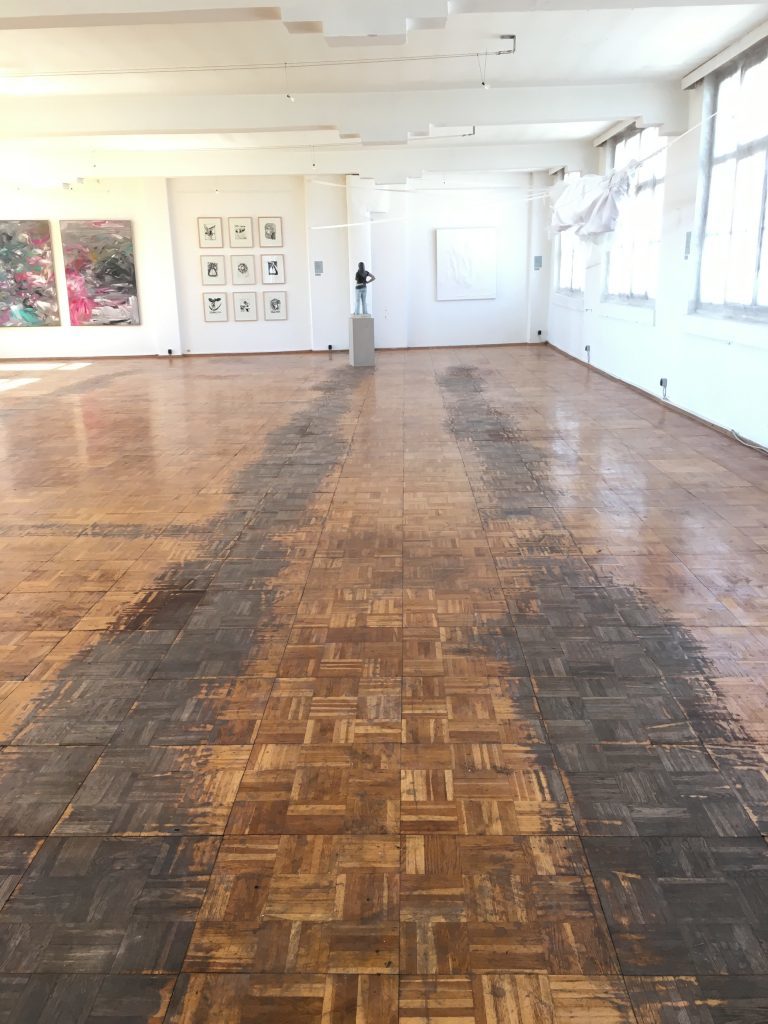
The Kulturfabrik: Traces on the Wooden Floor from the Knitting Factory
